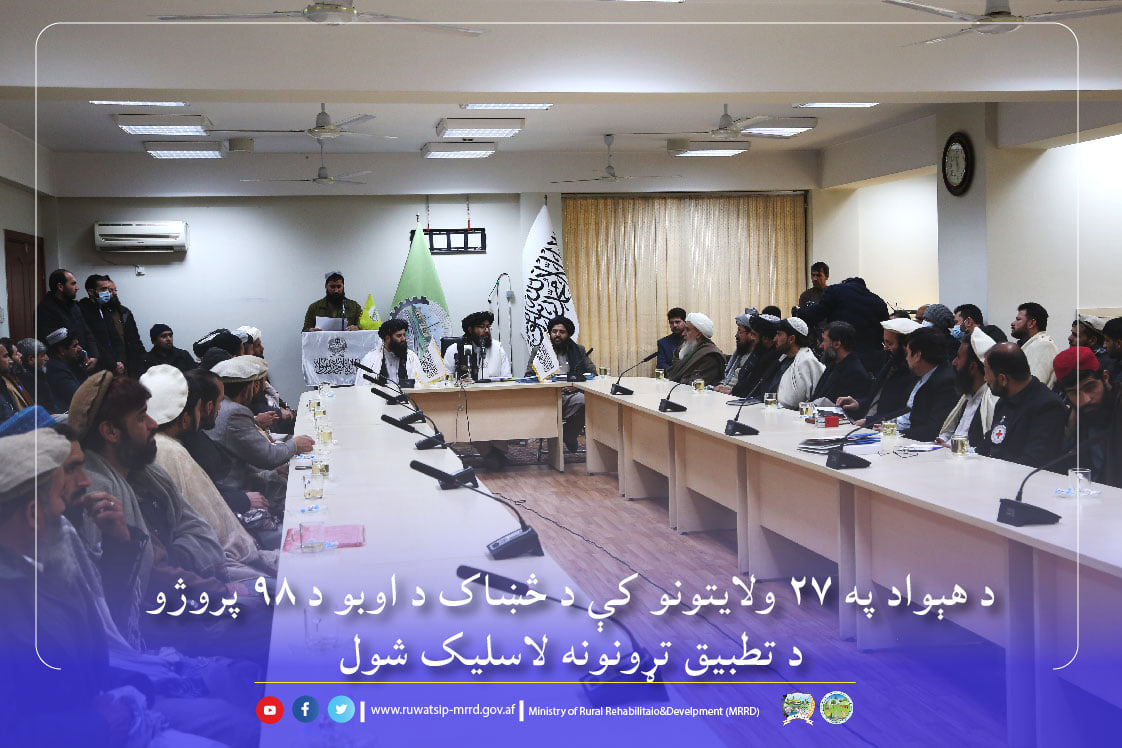The Ministry of Rural Rehabilitation and Development (MRRD) today/Sunday signed contracts for 98 Water, Sanitation and Hygiene (WASH) projects, planned to be implemented in 27 provinces of Afghanistan.
These WASH projects are planned to be implemented through the Rural Water Supply and Sanitation Programme (Ru-WatSP) in different districts of Urozgan, Badghis, Badakhshan, Bamyan, Baghlan, Balkh, Paktia, Paktika, Takhar, Jowzjan, Khost, Daykundi, Zabul, Samangan, Laghman, Ghor, Kunar, Kandahar, Logar, Wardak, Nangarhar, Nuristan, Helmand, Herat, Farah, Kundoz and Sar-e Pul provinces.
The projects, which are going to be executed through Ru-WatSP, include the construction of 89 water supply networks in 27 provinces, 50 hand pump-equipped wells, and 600 safe latrines in clinics and the provision of drinking water through tankers in Urozgan province.
The total cost of these projects is over 357 million AFN, which will be supported by UNICEF Afghanistan. With the completion of these projects, around 183,000 people will gain access to WASH services. The project will also create around 305,000 working days for the local residents.
In addition to signing water supply projects’ contracts, nine Memorandums of Understanding (MoUs) were also inked with those non-governmental organizations (NGOs) which are providing WASH services in the rustic areas of Afghanistan. Based on these MoUs, the NGOs will implement WASH projects, worth over 16 million dollars, in different provinces of the country. As a result of these projects, around 1.2 million people will benefit from WASH services.
MRRD Deputy Minister, HE Mufti Sayed Ahmad Mustaqim, stated at the press conference in MRRD, “As the Islamic Emirate of Afghanistan (IEA) has struggled against occupation and injustice over the past years, it will also attempt for the reconstruction and development of the country.” He added that all IEA members came from rural areas and that they well realized the problems and difficulties of the villagers. He promised that MRRD would always strive to solve the villages’ problems.











